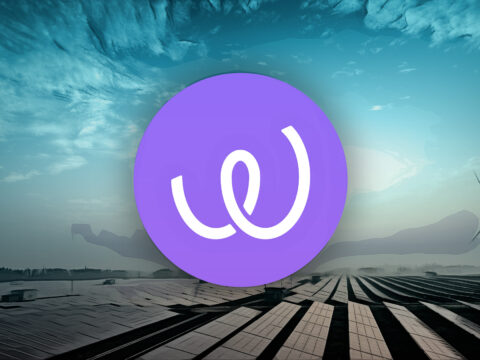
The Energy Web Token (EWT) operates with the Energy Web Chain, and it is the blockchain’s native token. It is an Ethereum Virtual Machine blockchain that uses Proof-of-Authority and a network of validators.
The verifier network includes a network of licensed companies in the energy sector. The Energy Web Chain is operated and managed by over 25 Validator nodes from 15 countries/regions, including utilities, grid operators, and startups.
The token is primarily used to protect the network from misbehavior and compensate verifiers through transaction fees and verification confirmation rewards. EWT can also be used to pay for services that simplify and enhance dApps.
Investors receive financial benefits from using the Energy Web Token (EWT) token and pay a certain amount of interest for the benefits.
Energy Web Token (EWT) tokens have two main uses.
- The first is the security that protects the network from misconduct or misbehavior in the execution of transactions.
- The second is validator compensation. Energy Web Token (EWT) tokens from transaction fees and block validation rewards will be used to compensate for the cost of the nodes running the validator.
What is the Purpose of Energy Web Token (EWT)?
Energy Web Token (EWT) – is a utility token for the Energy Web blockchain, designed to limit fraudulent transactions in the blockchain network. Verifiers are compensated for transaction fees and block rewards with the token, and the services which streamline and enhance the dApps are also paid in EWT.
Energy Web Chain focuses on applying business improvement solutions in the energy sector and building sustainable ecosystems around EW-DOS. They also focus on accelerating customer-centric, low-carbon electricity systems, which unlock the potential of open-source, decentralized, and digital technologies.
The energy sector ecosystem consists of utilities, grid operators, renewable energy developers, and corporate energy purchasers, among others. As such, all of these services require investment, which means there is potential for well-managed projects for that investment.
Energy Web Token (EWT) encourages investment in the energy sector. Investors can have tokenized ownership or stakes in on-site assets and customer-owned assets and services related to the energy sector.
The value of a utility Energy Web Token (EWT) comes from the fact that network users extract economic benefits from using it and are willing to pay for those benefits. For all transactions that flow over a public network, the network is also protected by various attack vectors.
How Does Energy Web Token (EWT) work?
Unlike other major cryptocurrencies, Energy Web Token (EWT) is listed on multiple cryptocurrency exchanges and cannot be purchased directly with fiat currency.
However, you can still easily purchase this coin by first buying Bitcoin (BTC) or Ethereum (ETH) from any major exchange and then transferring to the exchange offering it.
A total of 90 million Energy Web Token (EWT) were created to operate the Energy Web Chain. Another 10 million Energy Web Token (EWT) will be released as a block in 10 years to validate the prize.
Energy Web Token (EWT) uses a mechanism similar to Ethereum. Accounts submitting transactions to the Energy Web (EW) Chain are charged a transaction cost based on the computational workload of executing the transaction. A proxy estimates this effort for the computational effort called “gas.”
In a public blockchain, the existence of an optimal gas price makes the transaction economically attractive for both investors and validators while making it extremely costly to spam the network with superfluous transactions.
If the gas price is too low, security may be compromised, and validators may not cover their costs. If gas prices are too high, chains will not use them.
Energy Web Token (EWT) is currently listed on the global exchanges KuCoin, BitMart, and Liquid. It also supports many popular wallets that allow you to interact with Energy Web Chain and store Energy Web Token (EWT), including MyCrypto, MetaMask, and hardware wallets such as Ledger and Trezor.





